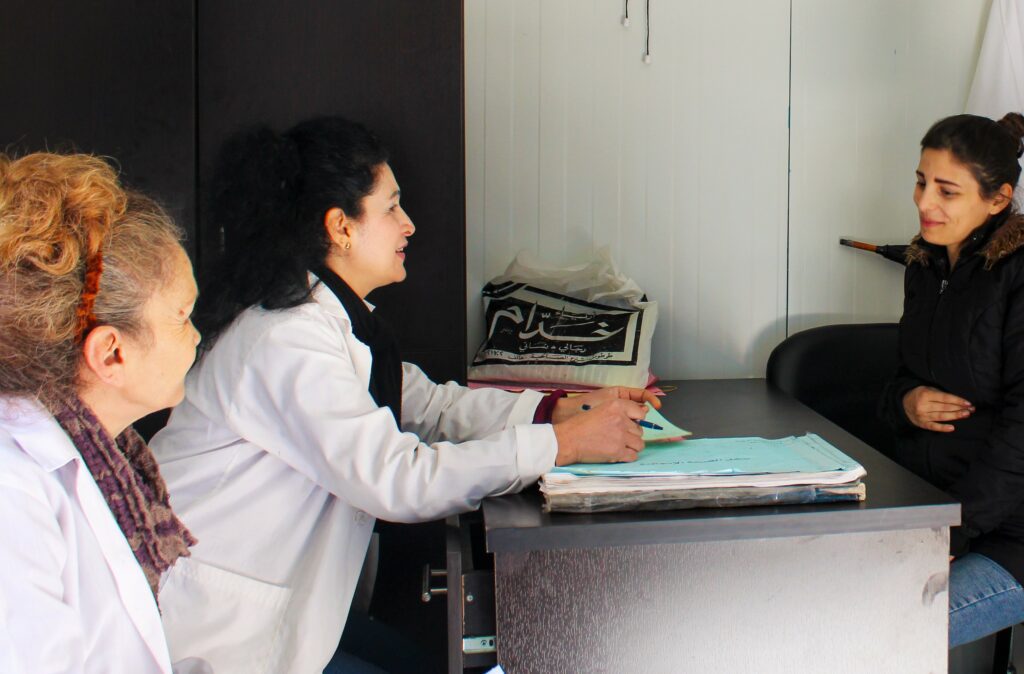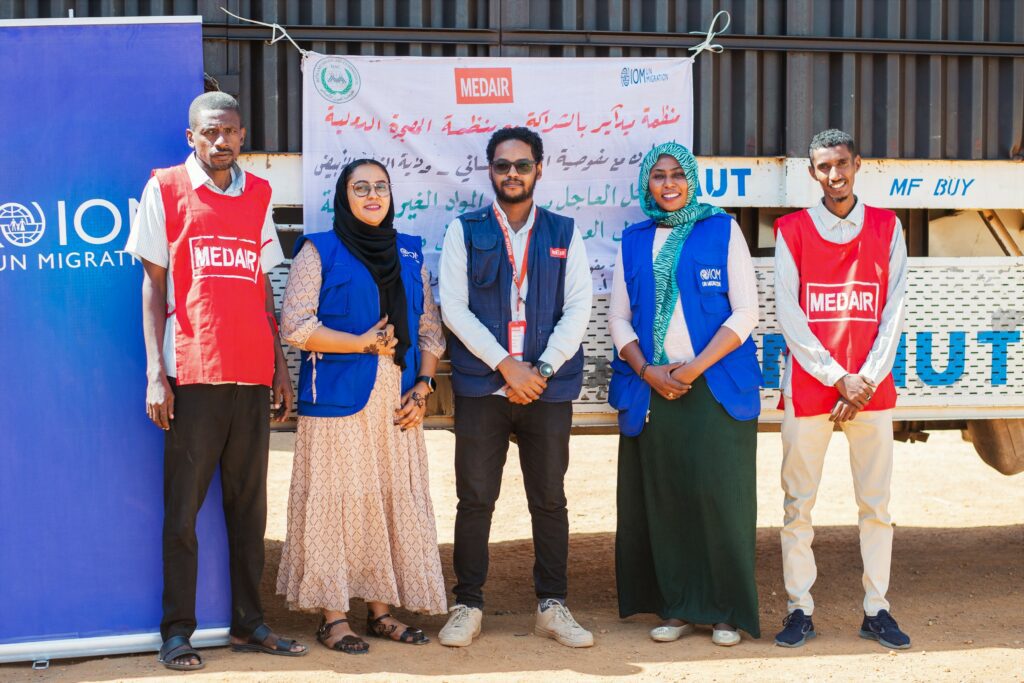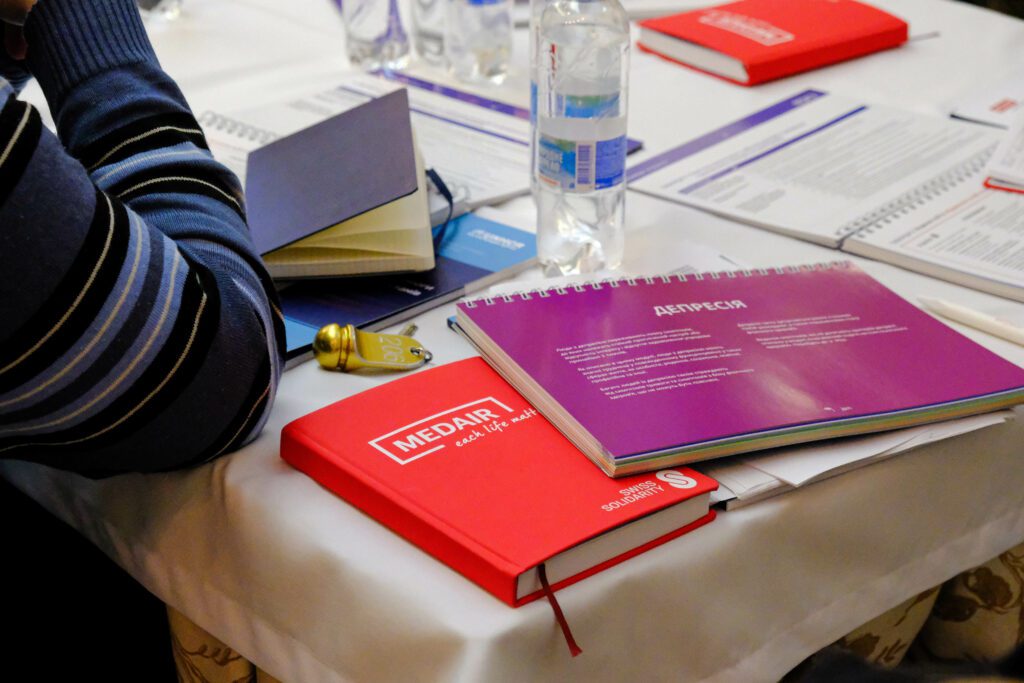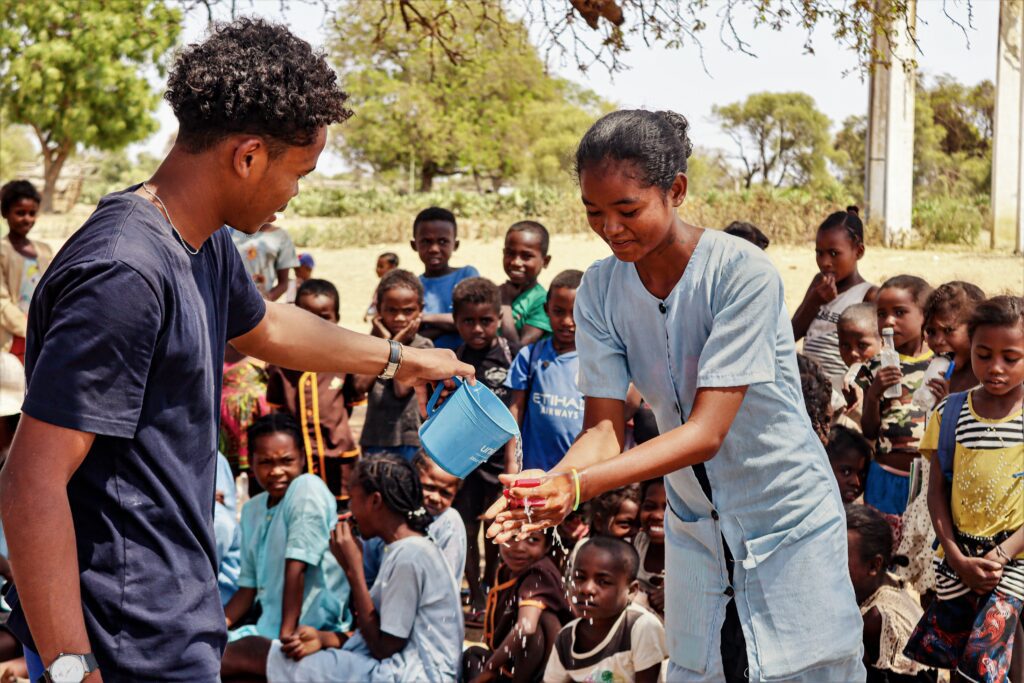30 years of going the extra mile: An interview with Medair pioneer, Dr Josiane Volkmar-André
2019 is a monumental year for Medair as we celebrate 30 years of service. In the months leading up to the anniversary, we are looking back at the beginnings to reflect on how far we’ve come and how many lives have been impacted, thanks to our family of supporters.
2019 is a monumental year for Medair as we celebrate 30 years of service. In the months leading up to the anniversary, we are looking back at the beginnings to reflect on how far we’ve come and how many lives have been impacted, thanks to our family of supporters.
Here we sit down with Dr Josiane Volkmar-André from Chardonne (Switzerland), who started Medair together with her husband in 1989.
What motivated you to start Medair in 1989 with your husband?
I was an emergency doctor and my husband was a dentist and manager. We both worked in humanitarian contexts for a number of years, together and separately. I worked in a refugee camp in Thailand, in a children’s hospital in Cambodia, in integrating refugees from Southeast Asia in California, and then in Lebanon during the civil war. My husband had worked in a hospital in Chad during the civil war and famine.
When we came back to Switzerland in late 1987, three organisations who knew us well on the ground—Mission Aviation Fellowship (MAF), MEDAF, and Youth With A Mission (YWAM)—proposed that we jointly launch a project devoted exclusively to responding to crises and disasters. They had the idea to name it Medair. The idea was exactly the same vision we had when we returned, so we agreed to start it.
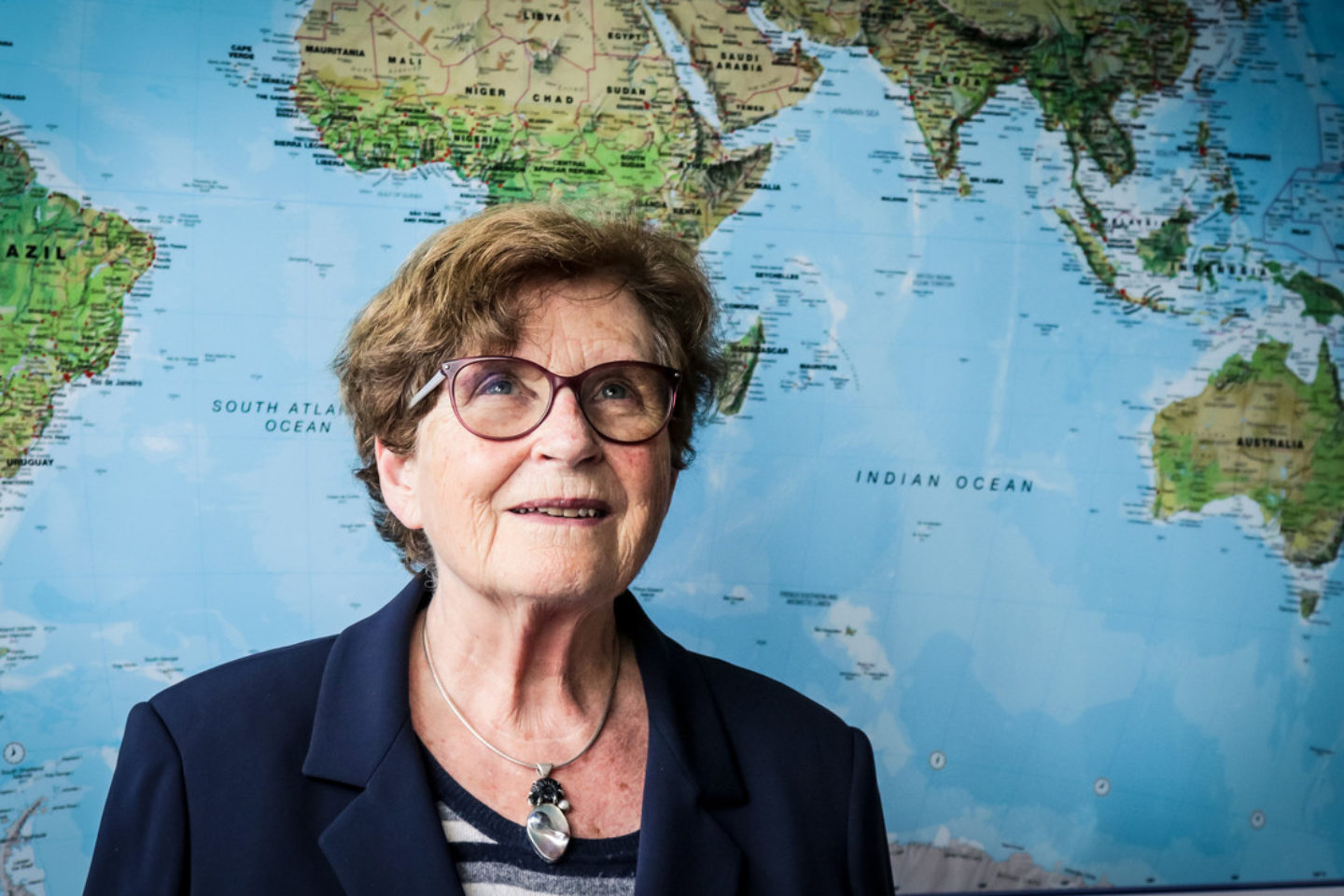
What were the early days like?
After some intense discussions, we met in June 1988 to put the idea in writing and registered the Medair association. We didn’t waste much time before we launched into our first response, which was in northern Uganda in the Teso region amidst the civil war that was happening there at the time. We began providing emergency relief to communities with the financial support of MAF and YWAM, as well as many contacts in Europe—friends, families, churches, MEDAF, and the Swiss Confederation through the Swiss Agency for Development and Cooperation (SDC).
This first programme, being very successful and highly regarded by the Ugandan authorities and the three parent organisations, proved that we were moving in the right direction. Medair was registered in Switzerland in 1989.
What do you think is at the core of Medair’s mission, present from the beginning?
We were inspired to start Medair because of the teachings in the Bible that say, “I was hungry and you gave me food, thirsty and you gave me something to drink.” In that way, Medair has always sought to provide concrete help to people experiencing immense suffering—no matter their race, nationality, gender, or religious affiliation. We did this and continue to do this by carefully taking into account the details of the context, the affected people, and their communities’ unique needs.
Medair has also strived from the beginning to go to the hardest-to-reach places—places that are underserved by other organisations—to ensure that remote communities are not forgotten. Ultimately, it’s the care for people and the personalisation that continue to be at the heart of Medair’s mission today.
What is your view today on the organisation almost 30 years later?
I am proud of Medair because it has maintained its values and mission, even though it has grown to be 4 times larger than it was when we left at the end of 2003. Medair is recognised and appreciated as an emergency relief organisation in the countries where we work, as well as respected by private and institutional donors. That is a great place to be as an organisation.
What do you want for the next 30 years?
That Medair would continue to demonstrate a lot of kindness towards others, and for the organisation itself, that it would continue to grow and multiply to reach more people in need. Or as we say in French, bon vent.
CHECK OUR LATEST STORIES
Featured StoriesStoriesSyriaHealth and Nutrition
A new life for a clinic in Syria
"The clinic is ready!" The news was music to Dr Eyad's,(the director of Tal Salhab clinic), ears. Medair had just completed the rehabilitation of Tal Salhab's only primary health centre, providing it with much-needed medical equipment – offering a lifeline to over...
StoriesSudanWater, Sanitation and Hygiene (WASH)
The Sudan crisis: how Medair is stepping in
Sudan crisis: how Medair is stepping in Twelve months into the armed conflict in Sudan, it has become the largest displacement crisis in the world. To date, 8.4 million people have been forced to flee their homes, and the number is growing every day. Families have...
StoriesUkraineHealth and NutritionMental Health
The Need for mental health support in Ukraine
“I really enjoyed the organization of these trainings. I’ve already gained a lot of interesting knowledge, which, it seems, I was already familiar with, but had never thought about it deeply. Learning new things, I understand how I can apply them in my work to...
StoriesMadagascarWater, Sanitation and Hygiene (WASH)
Medair’s innovative response to drought
In southern Madagascar, Medair aims to play a key role in improving access to water, sanitation, and hygiene for vulnerable communities affected by drought and 'kere' (famine). Normally, people living in remote villages in southern Madagascar need to walk 10 to 40...
StoriesUkraineShelter and Infrastructure
Surviving Adversity
“Sometime around 6 a.m., my nephew called me and said, ‘Are you still sleeping? THE conflict has started.’ I shouted at my children to turn on the television to watch the news. I never thought I would experience something like this at my age. It was a terrifying...
StoriesJordanHealth and Nutrition
Health Improvement Journey
"We lost everything, our home and farm, therefore I left everything behind me. I carry hope to have a better place for me and for my family," Fozeh said, her voice heavy with the weight of displacement but her spirit resilient with the promise of a brighter future....
StoriesMadagascarWater, Sanitation and Hygiene (WASH)Women & Children
Fetching water, a burden for women
In the struggle of finding clean water, women bear the heaviest load "In addition to my duties as a single mother, I have to fetch water three hours away every day," shares Farasoa, a 38-year-old divorcee raising seven children in the Fokontany of Ambory...
StoriesYemenHealth and Nutrition
From a shack to a health unit
Following nearly a decade of conflict in Yemen, the country has experienced a partial collapse of an already fragile public infrastructure, leaving approximately 66 percent of the population in dire need of humanitarian assistance. Yemen’s healthcare system has...


